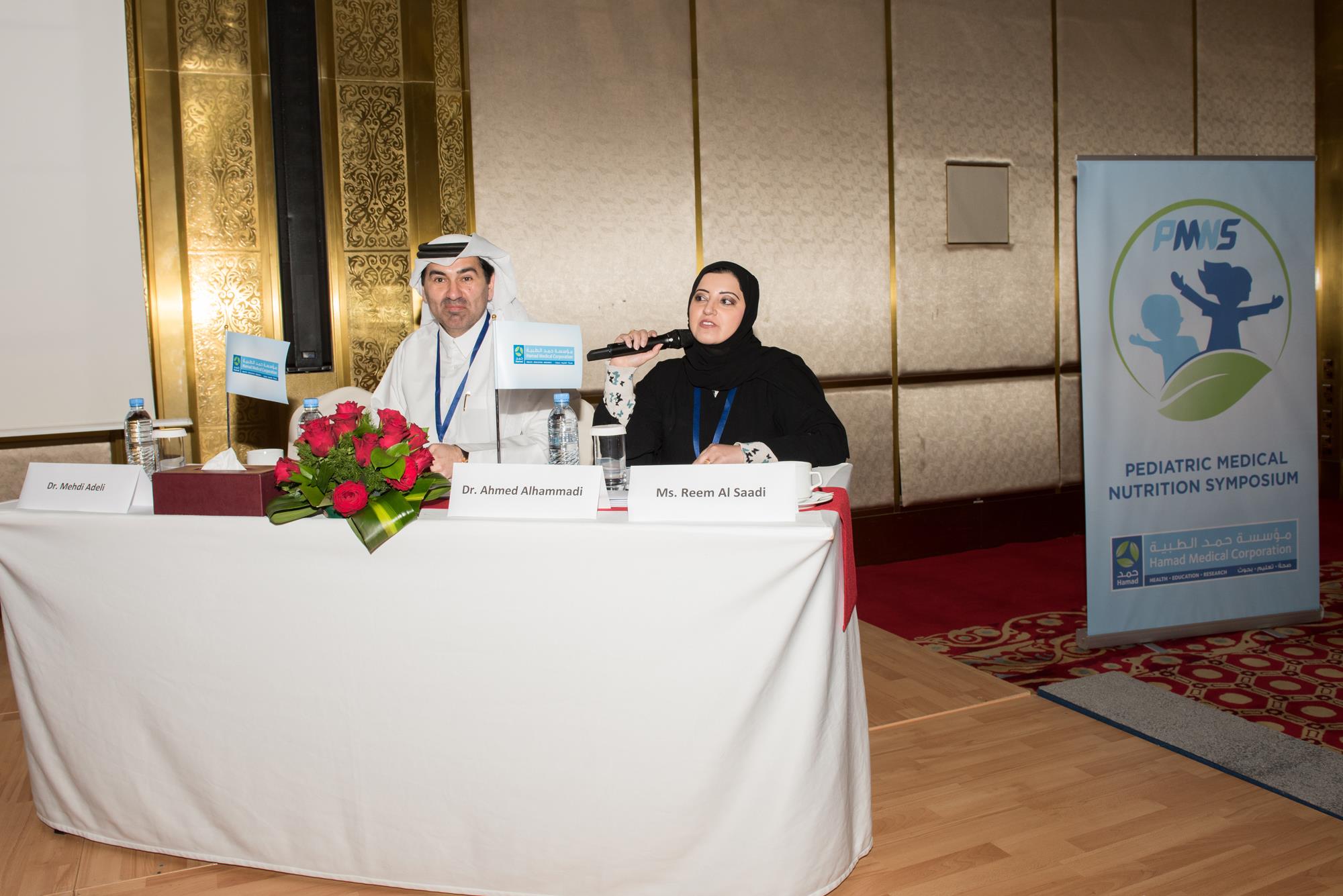The Dietetics Department in collaboration with the Paediatrics Department of Hamad Medical Corporation (HMC) recently organised the ‘First Paediatric Medical Nutrition Symposium’ to raise awareness among dieticians and paediatricians of the importance of dietetics, the diseases and disorders associated with paediatric nutrition and the appropriate feeding methodologies.
More than 120 participants comprising of dieticians, paediatricians and dietetics experts from HMC, Primary Health Care Corporation, Sidra Medical and Research Centre, private hospitals and clinics, and Qatar University, took part in the one-day event held at the Doha Sheraton Hotel. A dietetics expert from the United Kingdom was also present. The symposium featured a training workshop and some case study activities.
Reem Al Saadi, Head of HMC’s Dietetics Department said that topics such as allergies to cow’s milk and oesophageal reflux in paediatric patients were discussed. The symposium also focused on the percutaneous endoscopic gastrostomy (PEG) feeding tube method used for children with special needs who suffer muscle atrophies and swallowing difficulties.
Behavioural issues in children with nutritional risks were also discussed. Speakers at the symposium reiterated the importance of teamwork through the collaborative efforts of dieticians, doctors, nurses, and other healthcare professionals.’
Dr Ahmad Al Hammadi, Senior Consultant and Chairman of HMC’s Paediatrics Department indicated that allergies to cow’s milk are common among infants and toddlers with a prevalence rate of two to four percent in children younger than one year of age.
He stressed the importance of an early diagnosis in cases of allergic reaction to cow’s milk, characterised by symptoms such as rashes, vomiting, diarrhoea and chest wheezing. He explained that these symptoms may appear immediately after ingesting cow’s milk or 72 hours after ingestion. This disorder may recede once the allergic child reaches the age of five.
A cows’ milk or baby formula allergy is sometimes accompanied by other types of allergies such as gluten, cereal and nut allergies. Results of allergy tests, body weight and height, and family history must be taken into account to reach a precise diagnosis.’
Children diagnosed with this type of allergy are put on medicated formula at Hamad General Hospital. Dieticians at the hospital place these children under observation and follow-up, and prescribe an appropriate diet for them.
Dr Al Hammadi advised parents to watch their children’s weight as a low body mass index, especially within the first two years of age, may sometimes be a sign of health problems such as cardiovascular disease, metabolic disorders, or malnutrition. He called on parents to ensure they provide their children with balanced diets. However, he pointed out that parents should encourage and never force their children to eat.
Visit hamad.qa for more information on paediatric medical nutrition.





